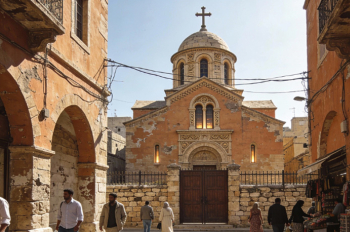
The Latin Evangelical Alliance (AEL) has strongly denounced Uruguay’s newly approved euthanasia law, calling it a “measure contrary to the gift of life” and urging Christians across Latin America to stand firm in defending life “from conception to its natural end.”
Uruguay’s Senate passed the law on Oct.15, 2025, by a vote of 20 to 11, making the country the first in Latin America to legalize euthanasia through parliamentary approval. The decision, following earlier endorsement by the Chamber of Representatives in August, has been described by secular media as “an unprecedented step in the region.” The AEL’s response came swiftly after the vote, reflecting growing tension between state policy, Christian ethics, and civil society.
In a statement titled “Declaration of Rejection of the Law Legalizing Euthanasia in Uruguay,” the alliance expressed “rejection” of what it considers a law that undermines the sanctity of life. The group said it views the legislation as part of a broader cultural trend that erodes the moral foundation of society. “We call on our churches and leaders to raise their voices,” the statement urged, emphasizing that believers must not remain passive in the face of laws that contradict biblical convictions.
The new law had been the subject of prolonged political debate. When it passed the Chamber of Representatives in August with 64 votes in favor and 29 against, it already signaled Uruguay’s direction toward becoming the first Latin American nation to legislate assisted dying. The Senate’s final approval brought months of controversy to a close but opened new fronts of opposition from faith communities.
Opponents of the measure argue that human life is an inalienable gift and should not be subject to deliberate termination. They point to palliative care as a compassionate and ethical alternative to end-of-life suffering. The AEL reinforced this position in its statement, asserting that every human being has “intrinsic dignity” and that “the deliberate termination of life by the State” sets a dangerous precedent.
The alliance warned that Uruguay’s approval of the law could usher in what it called a “culture of death,” contrary to Christian values centered on life, family, and compassion. It also reaffirmed its commitment to promoting public policies that strengthen palliative care and provide dignified support for those who suffer, rather than accelerating death.
Headquartered in Paraguay, the Latin Evangelical Alliance represents 23 national evangelical councils across the Americas and Spain. It describes itself as the unified voice of evangelical churches on social and ethical issues affecting the region. The statement on Uruguay’s law reinforces that mission, marking one of the strongest public stands the alliance has taken in recent years.
The AEL’s declaration also cited legal precedents beyond theology. Referring to a 2024 ruling by the European Court of Human Rights, the alliance noted that the court reaffirmed there is no “right to assisted suicide” under international law—an argument it used to demonstrate that its stance is grounded not only in faith but also in legal reasoning.
The AEL’s position aligns with previous declarations from evangelical leaders within Uruguay. The Evangelical Representation Council of Uruguay (CREU) had earlier stated, “We say, categorically, no to euthanasia. No to accelerating the process of death.” Their opposition reflects a consistent Christian concern that legalizing euthanasia undermines both the value of human life and the moral duty of care for the suffering.
As the law now takes effect, the Uruguayan executive branch must draft regulations for its implementation. Yet the AEL’s statement suggests that this transition will not be without resistance. Evangelical churches in Uruguay and across Latin America are expected to take a more active role in shaping public debate on bioethical and social issues, positioning themselves as defenders of life and dignity.
For the State, the new legislation introduces complex challenges, as it must balance individual autonomy with deep moral and religious objections from large segments of society. For evangelical congregations, the controversy presents both a test and an opportunity—to reaffirm their social witness and to engage the public square with renewed conviction.
The passage of the euthanasia law in Uruguay, and the reaction it has sparked, underscores a broader trend in Latin America where questions about the end of life, medical ethics, and faith increasingly intersect with politics and law. As debates continue across the region, the AEL’s statement serves as both a protest and a rallying cry, affirming the conviction that the defense of life remains central to the evangelical witness in a changing moral landscape.
Original reporting by Diario Cristiano, Christian Daily International's Spanish edition.






